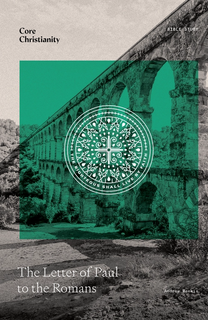This article is part of our series, “Cloud of Witnesses: Stories from the Church.” Read more from the series here.
“Just as we become aware of a meteor only when, after traveling silently through space for untold millions of miles, it blazes briefly through the atmosphere before dying in a shower of fire, so it is with Ignatius, bishop of Antioch in Syria.”[1]
Theologian and early church historian Michael W. Holmes uses this image to encapsulate the life of Ignatius. But why is Ignatius a blazing meteor, brilliant but fleeting? We don’t know when he was born or what his family was like. We don’t know anything about his early life. What we do know is how his life ended. We know he was a bishop in the city of Antioch when he was arrested, brought to Rome, and martyred for his Christian faith. We don’t know the reason the Roman Empire decided to do this. The only reason we know anything about Ignatius is that in the final weeks of his life he wrote seven letters. These letters were to the churches in the cities of Tralles, Magnesia, Ephesus, Rome, Philadelphia, and Smyrna. His final letter was to his friend Polycarp, bishop of Smyrna. We don’t have any historical accounts of what happened to Ignatius after he reached Rome, but it’s reasonable to assume that he was killed for his faith.
Why were Christians Persecuted?
Before taking a look at Ignatius’s letters, it would be helpful to understand why Christians were being persecuted at this time. Ignatius would have been martyred during the reign of Emperor Trajan (98–117 A.D.). We have a letter from a Roman governor named Pliny the Younger, addressed to Emperor Trajan, asking what he should do with Christians. Trajan told Pliny several things which give us insight into why Rome persecuted Christians at this time. Trajan said Christians should not be searched for, but, if one is found they must recant or be punished. Additionally, a Christian had to prove they meant it when they denied Christ by worshiping the Roman gods.
Christians were dealt with in this way because they posed a threat to the stability of Rome. At the top of Roman society overseeing all (not just politics but also religion) was the emperor. When Christians refused to worship the Roman gods and acknowledge the emperor as a deity, they challenged the emperor’s political power. Rome allowed all sorts of religions; as long as the believers worshiped the emperor, they would be left alone. Christianity posed a threat not because it was another religion, but because it demanded its adherents worship only Christ. This is why Rome saw Christians as dangerous political dissidents. Christianity could have been tolerated by the Romans if Christians had worshiped Caesar alongside Christ.
Final Words: The Letters of Ignatius
Imagine you’re in Ignatius’s shoes. You have been arrested for being a Christian and are heading, almost certainly, to a brutally painful and humiliating death . . . unless you give up your faith. How would you respond? What would you want to say before you died? This is the reality Ignatius faced as he wrote his seven letters. In his letters, Ignatius was concerned with three main things: the problem of false teachers in the church, the unity of the church (which was threatened by false teachers), and his approaching martyrdom. If we let them, these letters will teach, exhort, and encourage us to follow Christ with all our heart, all our soul, all our mind, and all our strength. I hope the following summaries of his main ideas will ignite a desire to go and read (or reread) Ignatius’s letters.
False Teachers
Ignatius was very concerned about false teachers and gave vivid warnings. He told the Church in Tralles, “These people [false teachers], while pretending to be trustworthy, mix Jesus Christ with themselves—like those who administer a deadly drug with honeyed wine, which the unsuspecting victim accepts without fear, and so with fatal pleasure drinks down death.”[2] This graphic image illustrates the bitter irony that false teachings promise life and blessing while bringing death and destruction. Rather than offering Christ alone as the source of redemption and holiness, the false teachers add themselves. A false teacher claims to possess some teaching, truth, or insight beyond that of Christ. This is reminiscent of Paul’s definition of a false teacher as someone who “teaches a different doctrine and does not agree with the sound words of our Lord Jesus Christ and the teaching that accords with godliness” (1 Tim. 6:3). Ignatius’s warning, though ancient, remains ever relevant for the church today. A false teacher’s message will be more about themselves than it is about Jesus.
Church Unity
Ignatius argued that unity in the church came by following the God-appointed bishop, or elder, that oversaw the church. The leader of the church was instituted by God, therefore he must be respected. In his letter to the Ephesians, Ignatius wrote, “For everyone whom the Master of the house sends to manage his own house we must welcome as we would the one who sent him. It is obvious, therefore, that we must regard the bishop as the Lord himself.”[3] In other words, those God appoints to preach his word and minister to his people possess his divine authority. They come not with their own message or authority but with the authority and message of God. For Ignatius, it is so important to understand this, so we can honor and respect our pastors. They are royal messengers, emissaries of the King of Kings, under-shepherds of the good shepherd. Ignatius says: “Where the shepherd is, there follow like sheep.”[4] If this exhortation is followed, Ignatius tells us that the church will be unified. False teachers divide the church by leading people away from Christ. True teachers and shepherds will lead people to Christ which will bring unity to the church.
How to face Persecution
As we might expect, a third major focus of Ignatius’s letters was his impending execution. He focused almost exclusively on martyrdom in his letter to the Roman church. While there is much to be admired about Ignatius’s conviction and faith as well as his courage in the face of persecution, he also displays a morbid desire for martyrdom. He is anxious that the Roman church do nothing to prevent his execution. In fact, he goes so far as to say “Let me be food for the wild beasts, through whom I can reach God . . . Better yet, coax the wild beasts, so that they may become my tomb and leave nothing of my body behind . . . Then I will be a true disciple of Jesus Christ.”[5] Martyrdom is most certainly an ultimate expression of faith, but it is not what makes a person a true disciple.
Despite Ignatius’s over-eagerness for martyrdom, we can learn from his boldness and willingness to follow Christ, even unto death. If we ever face persecution or martyrdom, let us pray that like Ignatius we might be able to say: “Neither the ends of the earth nor the kingdoms of this age are of any use to me. It is better for me to die for Jesus Christ than to rule over the ends of the earth. Him I seek, who died on our behalf; him I long for, who rose again for our sake.”[6]
Ignatius demonstrates true Christian courage. This courage is not found in his own physical strength, emotional control, or mental fortitude. Christian courage rests in the power of Christ and what he accomplished through his death and resurrection. Ignatius can boldly face persecution—even death itself—because he is sure his Savior conquered death. He trusted that Christ would be with him and, though his body be devoured by beasts, Christ had the power to raise him unto eternal life. Brothers and sisters in Christ, this is our hope as well! By the grace of God, may we cling tightly to Christ our Savior through any and all persecution.
[1] Michael W. Holmes, The Apostolic Fathers: Greek Texts and English Translations Third Edition (Grand Rapids: BakerAcademic, 2007), 166.
[2] All quotations of Ignatius come from Michael W. Holmes, The Apostolic Fathers: Greek Texts and English Translations Third Edition (Grand Rapids: BakerAcademic, 2007). Ignatius, Trallians 6:2, 219.
[3] Ignatius, Ephesians 6:1, pg. 189
[4] Ignatius, Philadelphians 2:1, pg. 239.
[5] Ignatius, Romans 4:1-2, pg. 229
[6] Ignatius, Romans 6:1, pg. 231






